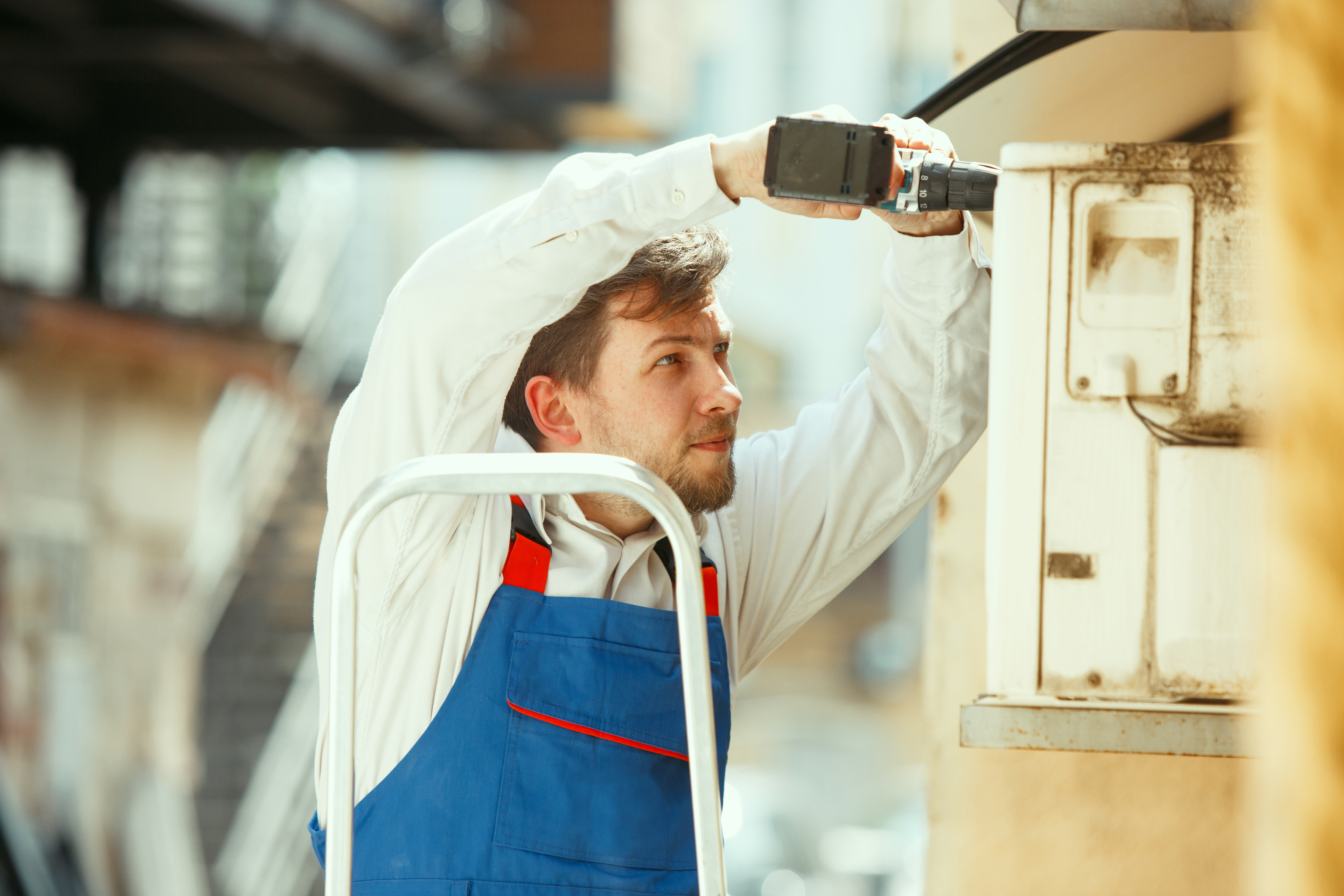For the Health and Wellness of Occupants, Commercial Indoor Air Quality Matters
November 2, 2021

Maintaining your HVAC systems and other building components helps you breathe easy about indoor air quality
Commercial indoor air quality relates to the quality of air within a building or space. Air quality affects the health and comfort of a building’s occupants and is affected by various factors such as the presence of gasses, particulates, microbials, and other agents.
Various government agencies and regulatory bodies have created standards for maintaining healthy indoor air quality in order to facilitate healthy and comfortable indoor environments. By following these guidelines and understanding what affects indoor air quality, occupants’ health can only improve.
What Affects Indoor Air Quality?
Environmental factors such as pollutants, allergens, and even microorganisms in the air can affect indoor air quality. A building’s construction, ventilation, and its age can affect the quality of indoor air, as well. Factors like weather and humidity can also play a role. And while some conditions cannot be controlled, others can be managed or mitigated to improve air quality.
Pollutants and Poor Indoor Air Quality
Some indoor air pollutants, like radon, can cause serious, life-threatening illnesses, such as lung cancer. Breathing in other contaminants, such as carbon monoxide, can be fatal. Some pollutants can cause both short- and long-term health problems, such as tobacco smoke and outdoor air pollution and exhaust that permeates indoor air.
While most indoor air pollutants will be more mild, people can react very differently when exposed to the same contaminants at similar concentrations.
.png?width=756&name=Commercial%20HVAC%20Highlighted%20(12).png)
Health, Wellness, and Sick Building Syndrome
Sick building syndrome describes a condition in which occupants of a building become sick or experience symptoms after coming down with a chronic disease driven by poor indoor air quality. Symptoms may lead to the worsening of a chronic condition or may improve when clean air is restored or the occupant stays away from the building.
Health and wellness can be tied to indoor air quality, and the fact that chronic conditions can affect people in office buildings and other indoor locations underscores the importance of commercial indoor air quality.
Proper Ventilation
The distribution of ventilated air to occupied spaces is needed for comfort. Further, adequate supply of outside air in any office building or commercial space is needed to dilute pollutants released by equipment, building materials, furnishings, and people and biological sources.
Ventilation systems replace indoor air with fresh outdoor air, which helps control the exposure to contaminants. They also assist with temperature and humidity control. Commercial systems may be designed to move a certain amount of air at a specific speed.
Building Age and Air Quality
Building age can affect indoor air quality. Older buildings might not necessarily have poor indoor air quality. However, they may be more likely to have older ventilation systems along with building materials and other components that could be degraded or linked to poor indoor air quality and health issues. Older buildings should have their inside air tested regularly.
Humidity and Weather
Humidity inside and outside of a building can affect air quality inside. High relative humidity promotes mold formation and growth of other biological components. Therefore, location matters when selecting your HVAC system provider. An area provider such as United Mechanical Service knows how the Oklahoma climate can affect the quality of indoor air and outdoor air. We service companies throughout the state, so we know what you’re dealing with weather-wise.
How to Test Commercial Indoor Air Quality
Air quality testing typically involves a specialist who performs building walkthroughs, air distribution systems inspections, and spot measurements of certain areas.
.png?width=756&name=Commercial%20HVAC%20Highlighted%20(13).png)
While a variety of toxins, pollutants, and allergens can affect commercial indoor air quality, a general indoor air quality test might look for and measure:
- Mold spores
- Temperature
- Relative humidity
- Carbon dioxide
- Carbon monoxide
- Hydrogen sulfide
- VOC (volatile organic compounds)
- Oxygen
Maintain HVAC Systems for Better Air
Proper ventilation starts with your HVAC system. Mechanical ventilation also filters clean air. When filters become contaminated with dirt, moisture, or microbial growth, poor indoor air quality can result.
Ventilation system design must also be kept in mind as buildings’ uses change. Since HVAC maintenance is critical to adequate delivery of and quality of air, preventive maintenance should be part of your building’s operations schedule, which can also extend a unit’s life expectancy.
Maintenance and Repairs for Improved Air
United Mechanical has decades of experience maintaining, repairing, retrofitting, and installing quality HVAC systems for Oklahoma businesses. While air quality depends on more than your building’s ventilation system, it’s a significant factor for keeping air clean. Proper maintenance is essential to the health of your building and its occupants, and we hope you realize the extent of this importance.
We invite you to read more about the maintenance- and HVAC-related questions, issues, and topics that we discuss.


